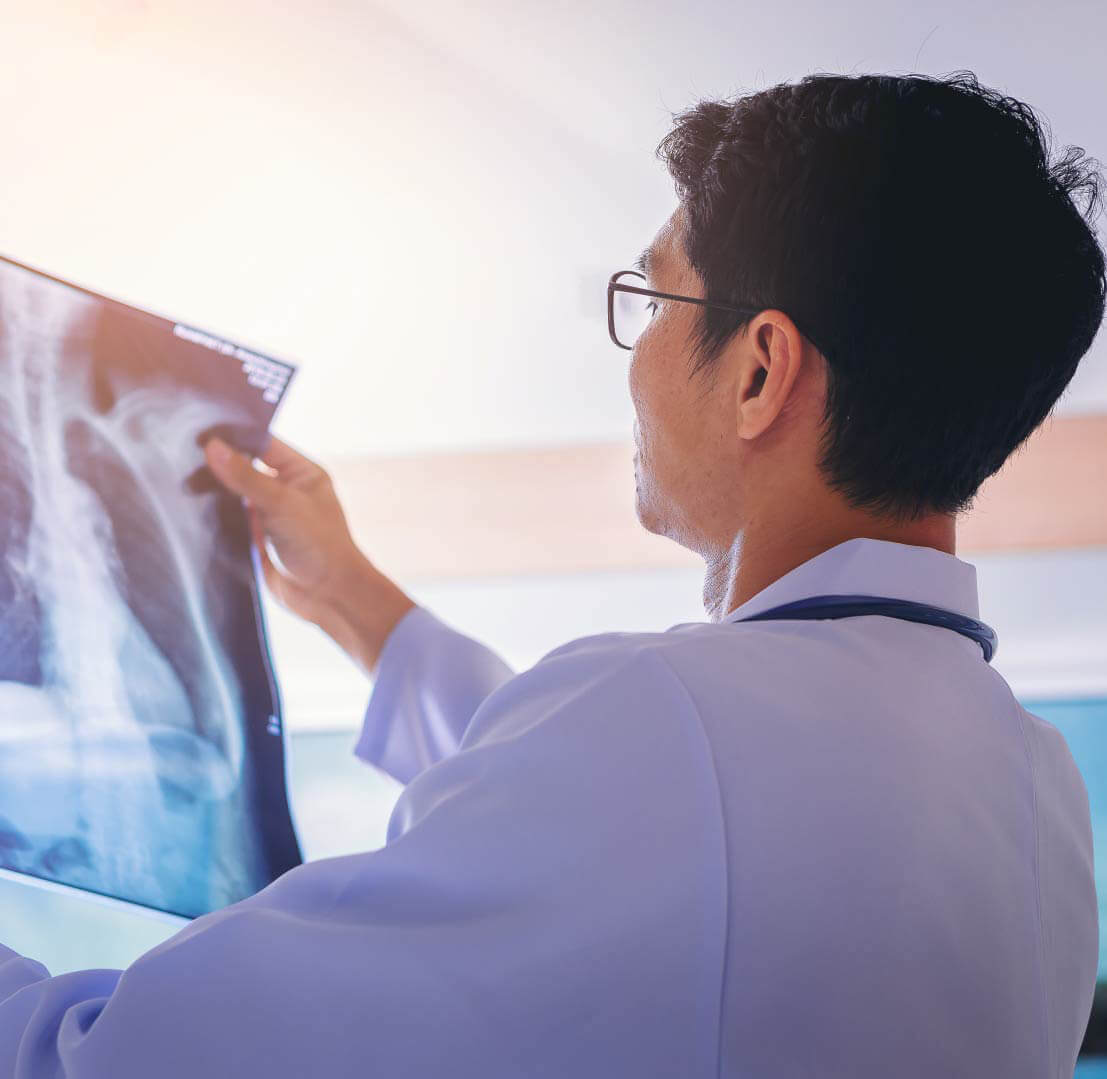- Anatomic lung resections (lobectomy, segmentectomy, pneumonectomy, wedge resection) for lung cancer. The operations are mostly carried out with thoracoscopic technique or robotics, in a minimally invasive way, avoiding thoracotomy;
- Complex lung operations with bronchoplasty, arterioplasty, chest wall resection, when required;
- Thoracoscopic management of recurrent pneumothorax and pleural effusions;
- Treatment of severe emphysema when conservative treatment with lung volume reduction surgery (Lung Volume Reduction Surgery) fails, removal of giant emphysema cysts;
- Removal of anterior, middle and posterior mediastinal tumors (thymoma, bronchogenic and pericardial cysts, teratoma and non-seminomatous tumors, neurogenic tumors). Operations involving mediastinal tumors smaller than 6-7 cm are performed with Robotic or Thoracoscopic technique;
- Removal of chest wall tumors;
- Treatment of chest wall deformities such as scaphoid or bird-like chest with thoracoscopic blade placement (Nuss procedure) or open method in more severe cases (Ravitch);
- Robotic diaphragmatic plication in cases of paralysis;
- Thoracoscopic or subxiphoid pericardial window procedure in cases of recurrent pericardial effusions;
- Management of chest trauma of any etiology and complications (traumatic hemothorax and pneumothorax, bronchus rupture, diaphragm rupture, surgical repair of flail chest);
- Performing a lung biopsy (thoracoscopically) in cases of interstitial lung disease, when it cannot be diagnosed by other means;
- Mediastinoscopy for sampling/biopsy of mediastinal lymph nodes in suspected lymphoma, sarcoidosis or for lung cancer staging when biopsy by bronchoscopy and endoscopic ultrasound is not possible;
- Surgical removal of large mediastinal or lung tumors by sternotomy or thoracotomy;
- Surgical treatment of mesothelioma (pleurectomy/exfoliation).
The use of minimally invasive techniques in thoracic surgery has developed in leaps and bounds internationally, especially in the last decade. They contribute to a smoother postoperative course and a reduction in postoperative complications. The patient is in little pain and can be mobilized on the day of surgery, which contributes to a smoother recovery.


